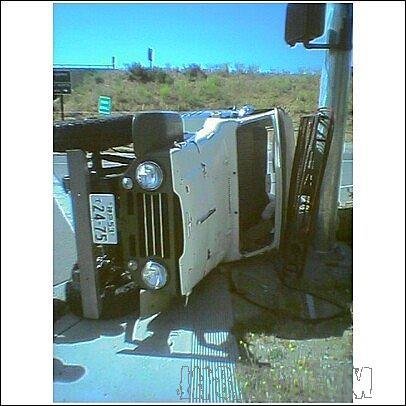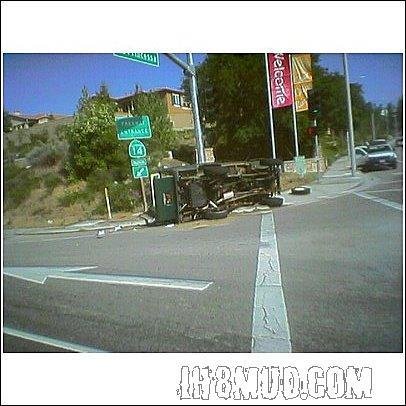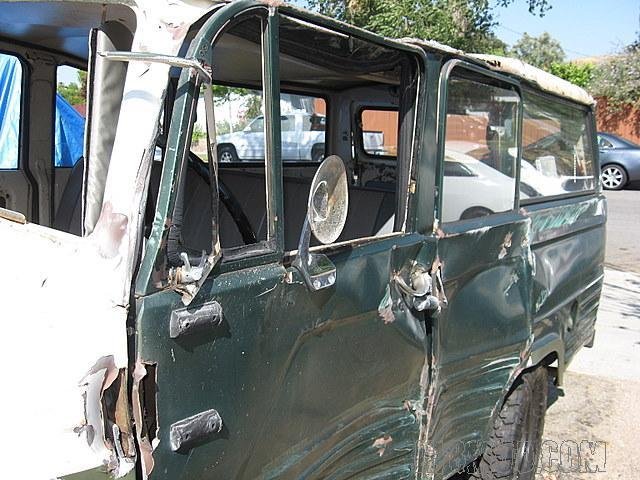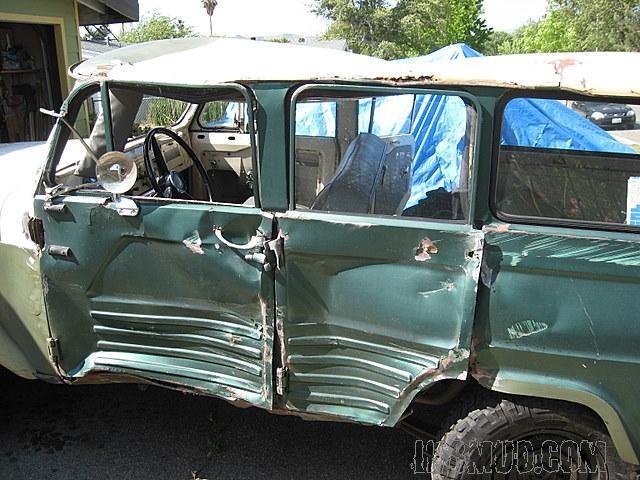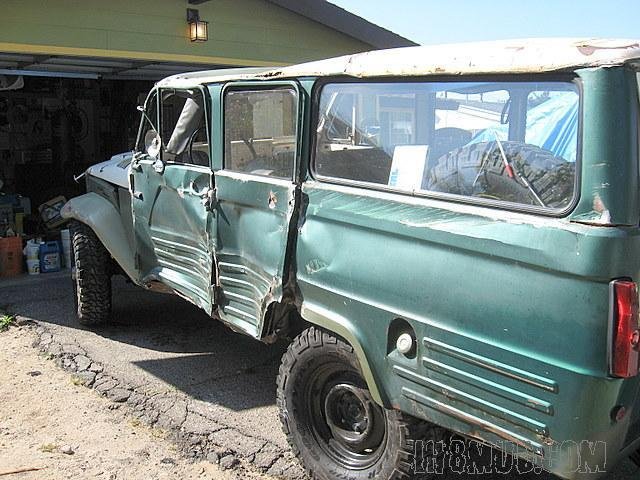You are using an out of date browser. It may not display this or other websites correctly.
You should upgrade or use an alternative browser.
You should upgrade or use an alternative browser.
single brake master cylinder change out to dual reservoir
- Thread starter thenimirra
- Start date
OK...my head is starting to hurt and I'm shifting into overdrive....
one system at a time fellas....I spent most of Saturday afternoon jotting down notes from Ige. and I don't think my head has recovered yet. I was thinking so hard trying to take it all in that I gave myself a headache.
change out single brake cylinder is all I can handle right now.
one system at a time fellas....I spent most of Saturday afternoon jotting down notes from Ige. and I don't think my head has recovered yet. I was thinking so hard trying to take it all in that I gave myself a headache.
change out single brake cylinder is all I can handle right now.
We're just saying that it's probably a little more work than that.
First question would be, "does the dual circuit master have the same bolt pattern as the single circuit master?" If it doesn't (and I don't think it does) then you will have to figure out a way to securely mount it to the firewall.
Second question would be, "since the single circuit master only has one brake line running to it and a dual circuit master has two brake lines to it, how am I going to configure the brake lines so that my new dual circuit master cylinder works properly?" - this is where all the details will start coming up, like the proportioning valve, fitting sizes, replacing soft lines with more sturdy/new units, etc.
Take a look at some of the pages from Specter Off Road and compare different versions of these things
First question would be, "does the dual circuit master have the same bolt pattern as the single circuit master?" If it doesn't (and I don't think it does) then you will have to figure out a way to securely mount it to the firewall.
Second question would be, "since the single circuit master only has one brake line running to it and a dual circuit master has two brake lines to it, how am I going to configure the brake lines so that my new dual circuit master cylinder works properly?" - this is where all the details will start coming up, like the proportioning valve, fitting sizes, replacing soft lines with more sturdy/new units, etc.
Take a look at some of the pages from Specter Off Road and compare different versions of these things
treerootCO
Rising Sun Member
- Joined
- Aug 22, 2005
- Messages
- 5,424
Can someone prove to me a dual master has anything to do with safety other than it is newer?
There is a single piston and it works on hydraulic pressure. Cut a hole anywhere in the system and it fails! When a single line on my 40 dual master failed, I lost my brakes completely. There was no backup...
The newer systems with dual circuits have built in proportioning valves and check valves to maintain brake pad pressure independently but cannot operate with a loss of hydraulic pressure.
There is a single piston and it works on hydraulic pressure. Cut a hole anywhere in the system and it fails! When a single line on my 40 dual master failed, I lost my brakes completely. There was no backup...
The newer systems with dual circuits have built in proportioning valves and check valves to maintain brake pad pressure independently but cannot operate with a loss of hydraulic pressure.
treerootCO
Rising Sun Member
- Joined
- Aug 22, 2005
- Messages
- 5,424
My parking brake is very functional in my 40 and I take pride knowing it works. The little amount of time, money, and effort it takes to fix your parking brake is worth it for added safety for you and those that share the road with you.
nuclearlemon
Hard Core 4+
not really. I don't see anything wrong with a single cir master.
i didn't either...butch baker will tell you he argued with my for a half an hour when he found out i had put a new single circuit master on my 45. then i saw these pictures of gene's rig when his failed.
the dual circuit has two pistons, ideally, only one will leak past. the one time i lost a master, i had very little braking, but at least i had some.
Attachments
nuclearlemon
Hard Core 4+
In addition to the extra line and the fab you will need an appropriate proportioning/residual check valve system.
not proportioning, since it's drums all the way around and the residual valve is inside the master cylinder.
should only need an adapter since she's got the three bolt master and will be going to the four bolt setup.
i didn't either...butch baker will tell you he argued with my for a half an hour when he found out i had put a new single circuit master on my 45. then i saw these pictures of gene's rig when his failed.
the dual circuit has two pistons, ideally, only one will leak past. the one time i lost a master, i had very little braking, but at least i had some.
Ahhhhh....so thats how they make 55's!




treerootCO
Rising Sun Member
- Joined
- Aug 22, 2005
- Messages
- 5,424
http://www.tpub.com/content/construction/14273/css/14273_248.htm
Found my answer. The assumption was that the rear drums were adjusted to the point that they would function before the pedal hits the floor.
Found my answer. The assumption was that the rear drums were adjusted to the point that they would function before the pedal hits the floor.
SteveH
Hard Core 4+
I added a dual circuit master cylinder to my '65 FJ45. I used a 1st gen. minitruck power brake master cylinder, bolted to the firewall, and used manually. Works great and has 'later 'cruiser friendly' fittings. To make the plumbing work, I replaced all the brake lines with '77 (late-model) FJ40 lines and '77 FJ40 axles. Upgrading your '63 FJ40 meaningfully will take a fair amount of replumbing and effort and converting some of the early fittings to late-style (thread pitch and size) fittings.
While my '76 F150 Ford pickup had 'dual circuit' brakes, when I had a leak, the pedal went to the floor and after frantic pumping, I had a small amount of braking action and didn't plow into the cars at the Mexican restaurant. Scared the willies out of me. Sadly, 'dual circuit brakes' (in my experience) don't give you a huge safety margin. I still would either make the upgrade or give your brakes a diligent inspection on a frequent basis.
While my '76 F150 Ford pickup had 'dual circuit' brakes, when I had a leak, the pedal went to the floor and after frantic pumping, I had a small amount of braking action and didn't plow into the cars at the Mexican restaurant. Scared the willies out of me. Sadly, 'dual circuit brakes' (in my experience) don't give you a huge safety margin. I still would either make the upgrade or give your brakes a diligent inspection on a frequent basis.
yes, the frequent inspection and adjusting is something I should get used to doing now.
ohh, those pics are frightening!
ohh, those pics are frightening!
DaveInDenver
Rising Sun Ham Guru
Badly neglected brakes are unsafe no matter single or dual circuit. Give your current system the once over and that'll go farther to keeping you safe than all the head scratching and what-if planning in the world. Your parking brake is your back-up, so don't neglect that. I think in some ways the old single circuit, all drum brakes were plenty safe in practice since they required you to always be adjusting and checking things. Anyway, that's what I would do, learn how your stock system works, it's a simple system and good to learn on. Ige's advice is good, a dual circuit is better, but it would be nice to understand what all of us are talking about before you start tearing your truck apart.
rover67
Rising Sun Member
I had dual circuit brakes fail on me after a leak on a rear wheel cylinder. who knows how it was supposed to work, but the master cylinder was new, and when the leak happened I lost all breaks.
maybe the shared reservoir is what did the whole shebang in. lost the fluid from one circuit, then the "good" one took on air and was disabled.
who knows.
maybe the shared reservoir is what did the whole shebang in. lost the fluid from one circuit, then the "good" one took on air and was disabled.
who knows.
wow...it's great that so many folks are interested in this and are willing to offer their help! I know that Ige was the first one from the club who spent time with me answering all my annoying newbie questions and patiently waiting while I took notes and lists of what I would need to do to get this project going.
Since this thread has caused such a stir on the board, does that mean I can expect more help from some of you this coming weekend or next when Ige and I get to working in earnest?
I gave Ige lunch and everything! I would do the same for you if you stopped by?
Since this thread has caused such a stir on the board, does that mean I can expect more help from some of you this coming weekend or next when Ige and I get to working in earnest?
I gave Ige lunch and everything! I would do the same for you if you stopped by?
Do you have a list of what needs to get done to get your truck on the road?
The more I read this thread, the more I think you should work on getting the existing brake system working. Replacing all the hard lines is an ambitious project, and you will probably need to accumulate parts before you get started.
I would advise approaching your project in this manner:
1. Figure out what isn't working.
2. Fix those items.
3. Register it and drive it.
4. Fix leaks.
5. Start upgrades.
The more I read this thread, the more I think you should work on getting the existing brake system working. Replacing all the hard lines is an ambitious project, and you will probably need to accumulate parts before you get started.
I would advise approaching your project in this manner:
1. Figure out what isn't working.
2. Fix those items.
3. Register it and drive it.
4. Fix leaks.
5. Start upgrades.
Rzeppa
Rising Sun Member
Matt hit the nail on the head, same advice I would give.
As far as this weekend, I believe I can, PM me with address and phone!
As far as this weekend, I believe I can, PM me with address and phone!
Red_Chili
Hard Core 4+
Regards if and why dual circuit brakes are safer, whether they are 'newer' or not:
The dual circuit system uses a master with two pistons operating two isolated brake systems. They generally share a reservoir for extra brake fluid to make up losses in the system, but from the two pistons to the wheels, they are separate. If one circuit fails due to a wheel cylinder failure or other leak, whether internal or external, which prevents pressure buildup during brake activation, the other circuit will work normally, and though you only have half the brakes, at least you have some.
Even this has limits though. If the leak goes unnoticed and drains the reservoir, in the case of a shared reservoir system as most of us have, there will be no fluid remaining for the good circuit, and it too will fail due to air entering the system which will not permit a pressure buildup and brake activation. It takes a while for all the fluid to drain out of a leak, and checking all fluids with every fill-up should catch it, which is normal maintenance (which few do).
But even well-maintained, well-inspected brake systems can fail. Maintenance and inspection is no 'get out of jail free' card. I have first hand and recent knowledge of this. When hunting this last fall, one cold morning I noticed that the pedal travel went further than normal and my brakes did not seem as effective. Mind you, the Chili normally has the best brakes of any vehicle I have ever owned, and will lock up all four wheels - 35x12.50s no less - with a heavy foot.
That evening we drove into town for a hot dinner, in Minturn. I definitely did not have the brakes I was used to, but the conditions were slick anyway so they were adequate. When we got back to camp, I jammed on the brakes to see what was up - the fronts slid on the ice, the rears just kept turning. I had NO rear brakes.
This was a spooky situation, as I needed to tow the camper back to Denver. The combination of strong front brakes, and trailer brakes, and cautious driving, got me home safely. The rear circuit piston seal in the master cylinder had failed internally, without leaks, while the front piston continued to work normally. The rear piston simply produced no pressure when the pedal was depressed. This failure occurred suddenly and with no warning. It is not unheard of, though with modern master cylinders it tends to be uncommon. With old ones, seeing long service, it is not uncommon at all.
Had this failure occurred with a single circuit brake system, the results would have been catastrophic. Catastrophic failures like this, with resulting death and injury, is why dual circuit brakes were invented in the first place.
For me whether to install a dual circuit master or not, requires no consideration at all. It is a no-brainer. You are doing the right thing, Ms. Wheeler!
The dual circuit system uses a master with two pistons operating two isolated brake systems. They generally share a reservoir for extra brake fluid to make up losses in the system, but from the two pistons to the wheels, they are separate. If one circuit fails due to a wheel cylinder failure or other leak, whether internal or external, which prevents pressure buildup during brake activation, the other circuit will work normally, and though you only have half the brakes, at least you have some.
Even this has limits though. If the leak goes unnoticed and drains the reservoir, in the case of a shared reservoir system as most of us have, there will be no fluid remaining for the good circuit, and it too will fail due to air entering the system which will not permit a pressure buildup and brake activation. It takes a while for all the fluid to drain out of a leak, and checking all fluids with every fill-up should catch it, which is normal maintenance (which few do).
But even well-maintained, well-inspected brake systems can fail. Maintenance and inspection is no 'get out of jail free' card. I have first hand and recent knowledge of this. When hunting this last fall, one cold morning I noticed that the pedal travel went further than normal and my brakes did not seem as effective. Mind you, the Chili normally has the best brakes of any vehicle I have ever owned, and will lock up all four wheels - 35x12.50s no less - with a heavy foot.
That evening we drove into town for a hot dinner, in Minturn. I definitely did not have the brakes I was used to, but the conditions were slick anyway so they were adequate. When we got back to camp, I jammed on the brakes to see what was up - the fronts slid on the ice, the rears just kept turning. I had NO rear brakes.
This was a spooky situation, as I needed to tow the camper back to Denver. The combination of strong front brakes, and trailer brakes, and cautious driving, got me home safely. The rear circuit piston seal in the master cylinder had failed internally, without leaks, while the front piston continued to work normally. The rear piston simply produced no pressure when the pedal was depressed. This failure occurred suddenly and with no warning. It is not unheard of, though with modern master cylinders it tends to be uncommon. With old ones, seeing long service, it is not uncommon at all.
Had this failure occurred with a single circuit brake system, the results would have been catastrophic. Catastrophic failures like this, with resulting death and injury, is why dual circuit brakes were invented in the first place.
For me whether to install a dual circuit master or not, requires no consideration at all. It is a no-brainer. You are doing the right thing, Ms. Wheeler!
Rzeppa
Rising Sun Member
...They generally share a reservoir for extra brake fluid to make up losses in the system, but from the two pistons to the wheels, they are separate.
<snip>
Even this has limits though. If the leak goes unnoticed and drains the reservoir, in the case of a shared reservoir system as most of us have, there will be no fluid remaining for the good circuit, and it too will fail due to air entering the system which will not permit a pressure buildup and brake activation. It takes a while for all the fluid to drain out of a leak, and checking all fluids with every fill-up should catch it, which is normal maintenance (which few do).
Stock dual circuit Land Cruiser brake masters had separate reservoirs until about 1980. I have seen a few aftermarket replacements which have the single reservoir and are intended for those applications, but stock is separate. I suppose the shared reservoir on the later units is for lower cost, and perhaps maintenance convenience.

 In return for goods of course
In return for goods of course 
